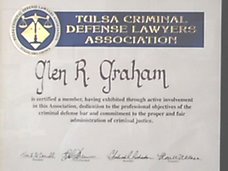The Tulia, Texas, government agreed to pay a settlement of $6,000,000.00 (million) dollars civilly. It involved false informant related activities and over 28 people falsely charged. Officer of the year in Texas, a “gypsie” traveling law enforcement officer, Tom Coleman, received an award during his activities. There was no corroboration for his arrests and some defendants were able to prove an alibi such as being at work during the time he said he made buys. Coleman said he made notes on his arms. The majority of defendants were minority Americans and many faced with many years in prison if they fought the case, accepted plea bargains in place of a trial.
Some statistics allege that “false informant” information is a major cause of false convictions in drug cases. According to retired, DEA agent, Dennis Fitzgerald, failure in the management of informants and co-operating individuals is the single most obvious source of integrity problems in the DEA. (See exact quotation below).
Also, there is the case of Kathryn Johnson, the 92 year old lady in Atlanta, Georgia, who was shot six times by police officers who broke into her home (she had anti-burglar bars and she came up shooting trying to protect herself) based upon a false affidavit for a search warrant that was subsequently determined to be a false affidavit and the alleged informant claimed he never gave the officers the false information. Subsequently, two police officers plead guilty to related charges and perjury type related charges involving the false affidavit.
There are other cases, multiple cases, involving false affidavits. Recently, during a jury trial in California, the Jury found the defendant not guilty when the informant testified and fell asleep on the stand several times. During a retrial a new jury found the informant not credible. The informant a drug addict in that case was paid several thousands of dollars. Putting a known drug addict or criminal on the pay roll whether by way of a reduced sentence or money is always a questionable practice.
Over, and over, and over again there are a multitude of false affidavits involving bad informant testimony.
Suggested reforms include requiring adequate "corroboration" for any informant testimony and an independent in camera judicial review of the informant file concerning credibility and corroboration and the existence of the informant.
Retired DEA special agent, Dennis Fitzgerald, author of The Informant Law Deskbook (West 1997), stated:
Many police managers view informants as a necessary evil, (1) time bombs waiting for the wrong moment to explode. The catastrophe that follows their detonation may include the death or serious injury of citizens, (2) civil law suits and destroyed police careers. (3) The Drug Enforcement Administration (DEA) reports that the "failure in the management of cooperating individuals constitutes, perhaps, the most obvious single cause of serious integrity problems in DEA and other law enforcement agencies."(4)
Notes and Sources: 1. Confidential Informants - Concepts and Issues Paper, International Association of Chiefs of Police, Law Enforcement Policy Center. 2. Carlson v. United States, 93-953G, see also Alvord, Snitches, Licensed to Lie?, San Diego Union Tribune, May 30, 1995, at A-7. 3. Commonwealth v. Lewin, 405 Mass. 566, 542 N.E. 2d 837 F.2d 727, 731 (6th Cir. 1988). 4. Integrity Assurance Notes, Drug Enforcement Administration, Planning and Inspection Division, Vol. 1, No. 1 (Aug. 1991). See also United States v. Gardner, 658 F. Supp. 1573, 1575 (W.D. Pa. 1987).
See Fitzgerald's article: http://www.nacdl.org/CHAMPION/ARTICLES/98may03.html
Bad Informant Testimony Has Disastrous Consequences - Tulia, Texas and the Kathryn Johnson 92-Year Old Woman in Atlanta, Georgia Case
Subscribe to:
Post Comments (Atom)




No comments:
Post a Comment